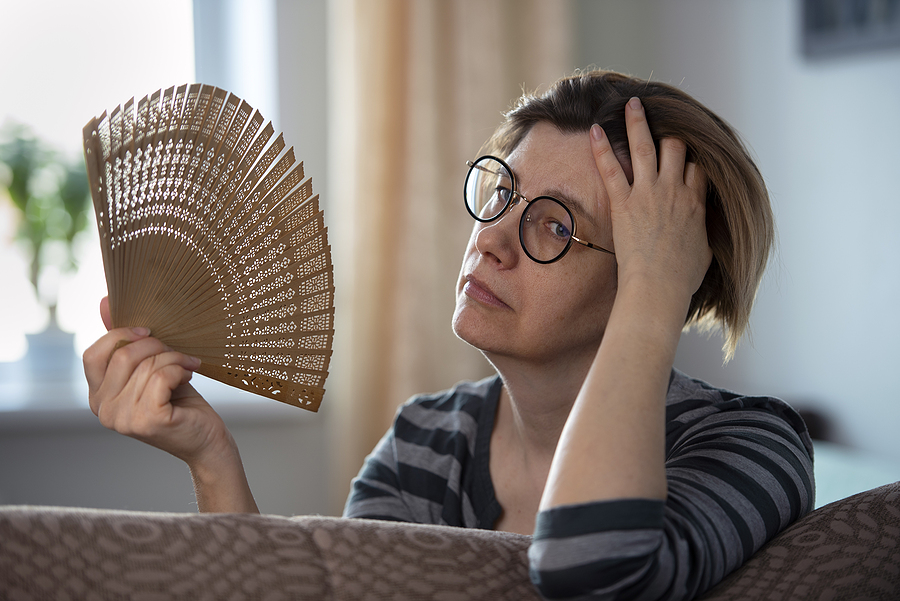It’s been in favour, out of favour, and on the fence. Now it might be somewhat back in favour —with provisos.
The use of hormone treatment to address menopausal symptoms started in Australia in the 60s and probably reached peak popularity by the 90s.
That changed in 2002 when a big American study was stopped early because hormone use seemed to increase the risk of breast cancer, stroke, and heart disease. It was concluded that the risks outweighed the benefits.
After that there was, understandably, far less enthusiasm for prescribing it.
In the years since, the design of that American study has been heavily criticised. Even so, most reviews of hormone use have argued that although it relieves menopausal symptoms, it comes with risks.
The usual advice has been to start before age 60 and use it for as brief a time as possible.
Mind you, the research has been confusing because every study seems to have used a different product, dose, and way of administering it, so there are a ridiculous number of possible ways that ‘hormone therapy’ can look.
But a new study might help to sort through the maze.
These researchers analysed the medical insurance records of 10 million American women aged 65 and over from 2007 to 2020, comparing the health of those who had and hadn’t used hormones.
Over time, hormone use dropped off, but what showed up was that many women who’d used it were in good health in their older years, often with less cancer, heart disease, stroke, and dementia than women who hadn’t.
Moreover, it didn’t seem to be a problem for women who’d continued it well into their 60s. Which is welcome news given some women have difficult symptoms for ten or more years.
What the data showed was that hormone treatment produced the best outcomes when it was used in low doses and in forms we don’t have to swallow — i.e. creams, patches, and so on.
The downside of this kind of study is that we don’t know anything about the lifestyles of these women (or their genes for that matter). We can’t assume that their wellbeing depended entirely on whether or not they’d used hormones.
Still, it provides a lot of data about different doses and combinations, and how these might affect the risk of various conditions, which ought to be a valuable resource for doctors.
It didn’t differentiate between conventional hormones and bioidentical hormones though. And if you’ve had anything to do with doctors in this area, you’ll know they fall into these two distinct camps.
The conventional group argues against bioidenticals because there’s no quality control over them (they’re compounded), and the bioidentical camp dismisses conventional hormones as chemical or synthetic, in comparison with their more ‘natural’ product that’s tailored to women’s individual needs.
Ultimately though, they’re all pharmaceutical products made in a lab.
I’ve used bioidentical hormones for ten years, but not for menopausal symptoms. I started down this road because my bone density was low, and the research on estrogen and bones is positive.
Initially I was prescribed a cream that I rubbed into my arms or legs, but in more recent years that’s changed to a troche (a lozenge that’s dissolved by tucking it inside my cheek). After age 60, my doctor says, absorption is better with a troche.
Ten years is a long time though, and in a recent telehealth consultation I asked her about research on the safety of doing this over a long period. Research on bioidentical hormones in general is hard to find.
She assured me that I could use it forever and recommended a book called The Good News About Estrogen, by gynecologist Dr Uzzi Reiss. Uzzi treats women from his Beverly Hills Anti-Ageing Centre. (It doesn’t get more cliched than that, does it?)
I found the book disappointing though. Much of it is on diet and exercise, which is fine, but I was looking for good references on long-term use and there weren’t any. Plus, a lot of the publications he refers to are a bit old now, although the book was published in 2020.
My doctor also argues that women can start using bioidentical hormones after age 60. She says she’s prescribed them for patients in their 80s.
She’d agree with Uzzi Reiss that the menopausal hormone shift leaves women deficient in estrogen, and that putting a bit back will help support the health of our hearts, brains, bones, and other tissues.
There’s a logic to that, though I’d far prefer to see the evidence than rely on the ‘trust me I’m a doctor’ line.
As is often the case, we’re left to try to tread a path between conflicting ideas.
For now, the best advice for women with symptoms is to stick with a low dose and a safer (non-oral) route of administration, and you can probably use it for as long as you need to.
For women like me who use it for other reasons, potentially forever, it requires a leap of faith. Though we could say that about most drugs.
Photo Source: Bigstock

